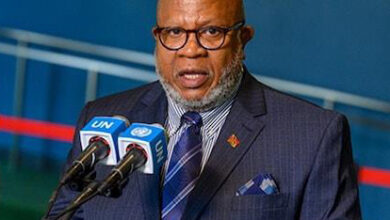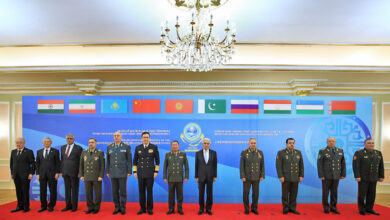Militaries of the US and India are accelerating operational activities to boost maritime security in the Indian Ocean: Lloyd Austin
By R. Anil Kumar
-
We are beginning a new chapter in US-India relations-US Defence Secretary Lloyd Austin
-
The US defence secretary Lloyd Austin said, “India-US militaries are accelerating joint exercises, information-sharing and other operational activities to boost maritime security in the Indian Ocean”
-
US-India Comprehensive Global Strategic Partnership is essential to a free and open Indo-Pacific, amidst China’s assertive moves in the region- Admiral John C Aquilino
Washington, April 12.
US Defence Secretary Lloyd Austin has told lawmakers that by bolstering the Indian military’s capabilities, the two nations can work together to uphold a more stable balance of power across the wider Indo-Pacific region.
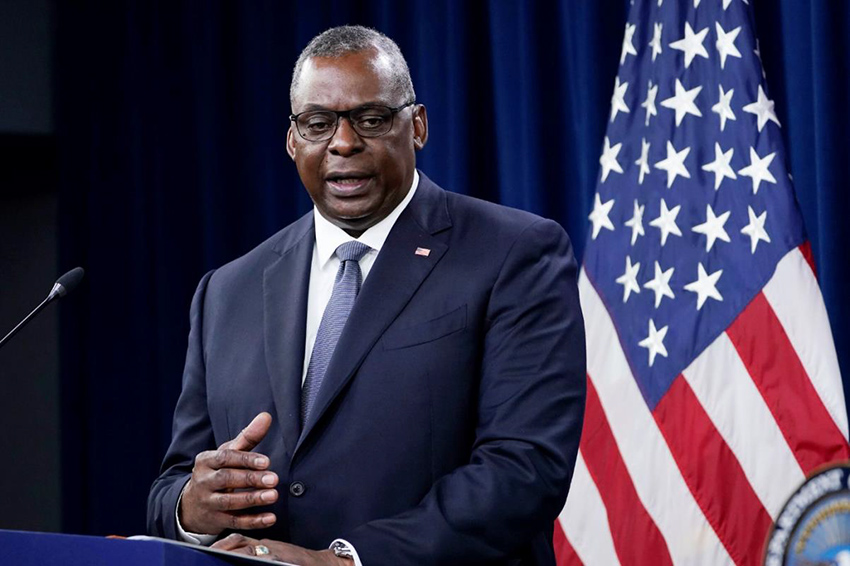
Austin also told members of the Senate Armed Services Committee during a Congressional hearing this week on the annual budget of the Department of Defence that the militaries of the US and India are accelerating operational activities to boost maritime security in the Indian Ocean.
“By bolstering the Indian military’s capabilities, we can work together to uphold a more stable balance of power across the wider Indo-Pacific,” Austin said and added that “with this budget request, we are beginning a new chapter in US-India relations under our Major Defence Partnership”.
The defence secretary said, “Our militaries are accelerating joint exercises, information-sharing and other operational activities to boost maritime security in the Indian Ocean.”
“We are committed to ensuring that the growing US-India partnership supports the efforts of our broader network of allies and partners, especially the Quadrilateral Security Dialogue among Australia, India, Japan, and the United States,” Austin said.
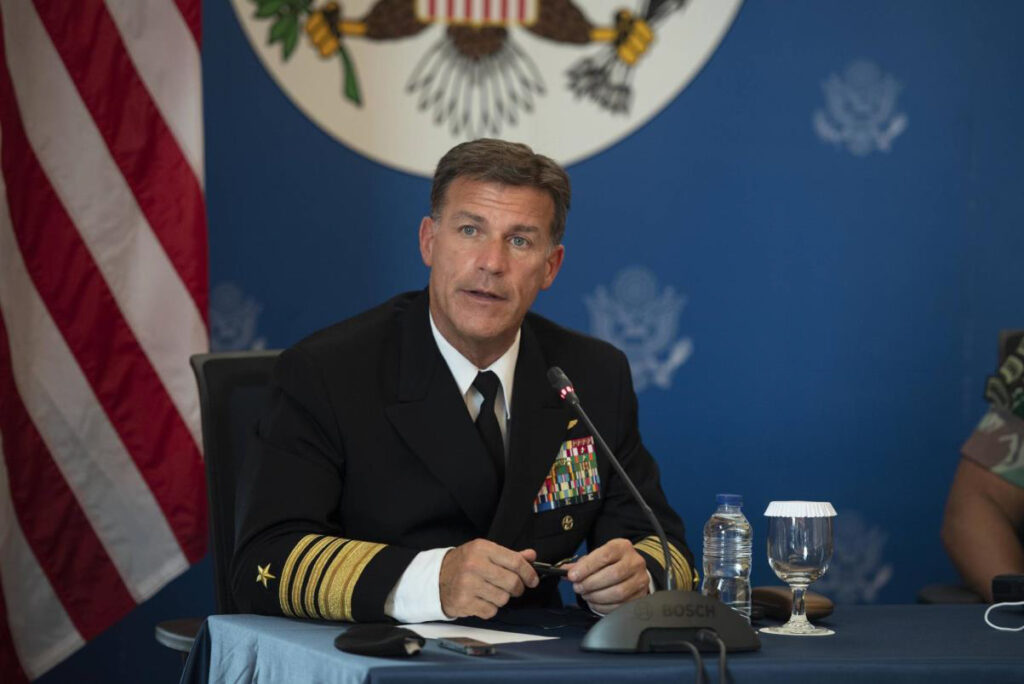
At a separate Congressional hearing on the Indo-Pacific, the Commander of the US Indo-Pacific Command, Admiral John C Aquilino, told lawmakers that a strong US-India Comprehensive Global Strategic Partnership is essential to a free and open Indo-Pacific, amidst China’s assertive moves in the region.
In 2023, the US and India launched INDUS-X and completed a roadmap for US-India Defence Industrial Cooperation to enhance bilateral defence industrial cooperation and innovation, he said.
The proposed deal between GE Aerospace and Hindustan Aeronautics Limited for domestic Indian production of the F-414 jet engines exemplifies this approach.
“The US and India are seeking unprecedented levels of interoperability by expanding cooperation in the air domain through the participation of US B-1B bombers in India’s biennial air show AERO INDIA and bilateral air exercise COPE INDIA,” Aquilino said.
He said that, additionally, in the land domain, “we conducted the largest-ever bilateral joint amphibious exercise with India, TIGER TRIUMPH, improving our cooperation on maritime domain awareness and strengthening service-to-service ties”.
“USINDOPACOM (or the United States Indo-Pacific Command) seeks to deepen cooperation under the Logistics Exchange Memorandum of Agreement (LEMOA) to enable more regular and flexible engagements in the Indian Ocean region, including US ship repair in Indian shipyards,” he said.
Two new Master Ship Repair Agreements were signed in 2023, and three US Navy vessels have recently received maintenance and repair in Indian shipyards, the US admiral said.
Aquilino also told lawmakers that in 2021, amid its long-running border dispute with India, China passed a land border law “which asserted that the sovereignty and territorial integrity of the (People’s Republic of China) are sacred and inviolable” and provided a legal framework for greater People’s Liberation Army involvement in border security.
The Indian and Chinese troops are locked in a standoff in certain friction points in eastern Ladakh even as the two sides completed disengagement from several areas following extensive diplomatic and military talks.
The eastern Ladakh border standoff erupted on May 5, 2020, following a violent clash in the Pangong Tso (lake) area. The eastern Ladakh standoff has resulted in a freeze of bilateral ties on all fronts except trade
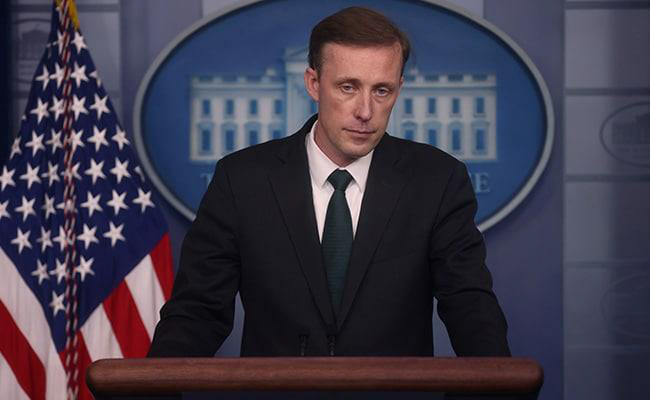
Meanwhile, US National Security Advisor (NSA) Jake Sullivan to travel to India next week for talks to take bilateral ties to next level
Jake Sullivan will travel to India next week to “compare notes on the Indo-Pacific,” talk about technology cooperation and also meet his counterpart Ajit Doval and others to take the US-India relationship to the next level.
Sullivan is likely to meet Doval for the annual review meeting for the initiative on critical and emerging technologies (iCET) that was postponed due to the cancellation of his visit in February due to other global commitments.
The India visit by a close Biden aide comes soon after Foreign Secretary Vinay Kwatra who is in the US for a series of meetings with senior officials from the US government and interacting with industry leaders to advance bilateral cooperation in areas such as defence and technology.
Sullivan would be in India next week “to celebrate elements of our bilateral relationship, compare notes on the Indo-Pacific, and also talk about the next steps in technology cooperation. We think these are all effective, prudent elements of taking the US-India relationship to the next level,” a senior White House administration official said without announcing the date of his visit.
He was addressing a background press call on Wednesday, previewing the official visit of Japanese Prime Minister Kishida Fumio, who is on a US trip beginning April 9.
The senior administration official was asked how the US was thinking of India within the context of the deepening military, defence, and security partnership that it has with treaty allies in East Asia and if the US looks at India as part of this network.
“I think if you ask the President, one of the things that he’s proudest of is his efforts to build a stronger relationship between the United States and India. And I do believe, both in the Indo-Pacific and the Indian Ocean and on key issues like technology, the United States and India are working more closely together than ever before,” the official said.
“And I would simply say that I think the US-India relationship is trending substantially in a positive direction and that our level of engagement across every possible vector — security, intelligence, technology, people-to-people — has excelled,” he added.
Incidentally, US Defence Secretary Lloyd Austin has told lawmakers that by bolstering the Indian military’s capabilities, the two nations can work together to uphold a more stable balance of power across the wider Indo-Pacific region.
On April 10, the senior administration official further said, “Not only have our relations with India improved in a bilateral context, but it is also the case that India’s partnership with other countries, working with us and then working just independently, has also stepped up substantially.
“I would say, in many respects, engagement with India is some of the most — the most desired kinds of engagements on the global stage, and we’ve seen this with a variety of key players.”
The official admitted that in the past, “on both sides, there perhaps had been some ambivalence or some uncertainty. I see very little of that now.
“I see leaders on both sides who are all in on the promise and prospects of the other, recognise the potential of this relationship that is deeply supported by an activist diaspora community here, and technology and other firms who understand the potential of India,” he added.
“And I would just simply say that I see the engagement with India as central to everything that we’re seeking to do on the global stage. And I would simply say that I think, in many respects, it will be our most important bilateral partnership heading into the latter parts of the 21st century,”



